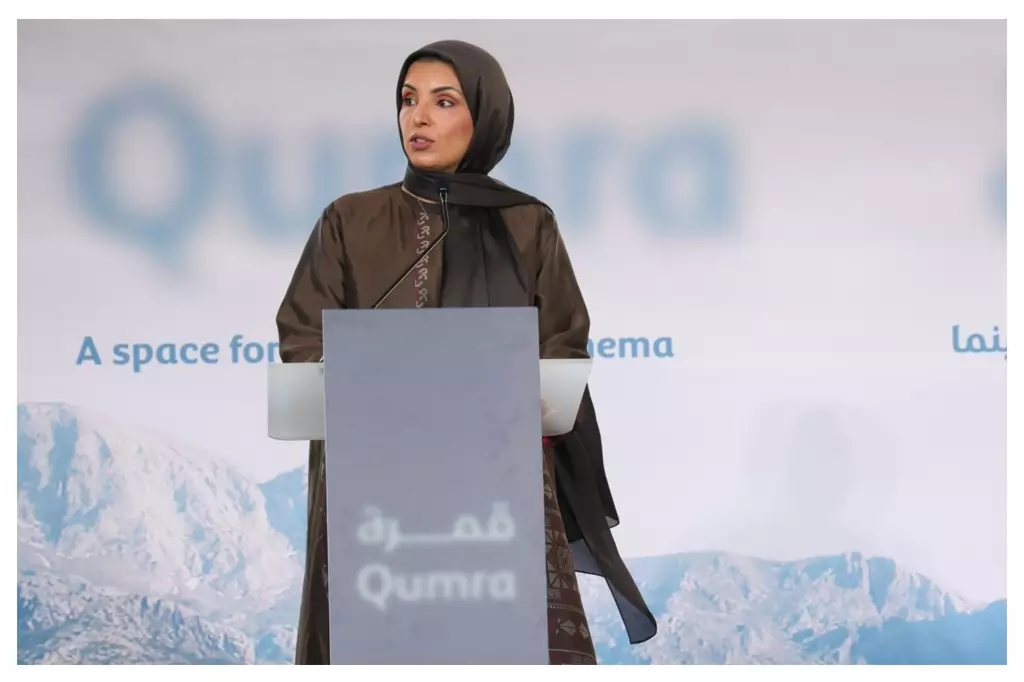In an era marked by conflict and tumultuous political landscapes, the role of cinema transcends mere entertainment; it embodies the potential for profound social commentary and change. The recent gathering at the Doha Film Institute (DFI), particularly the annual talent and project meeting, spotlighted the importance of storytelling in articulating the complexities of our world. Against the backdrop of the escalating Israel-Gaza conflict and the chilling reports of violence against pro-Palestinian activists, the DFI event resonated with a sense of urgency, compelling artists and creators to use their platforms for advocacy and solidarity.
The meeting, held in the culturally rich setting of the Museum of Islamic Art in Doha, saw an assembly of around 300 attendees. The ambiance was charged with the anticipation of inspiration—both from the community and from Brazilian director Walter Salles, who shared his insights following a significant win for Best International Feature Film for “I’m Still Here.” Salles’ experience illustrates the powerful effect cinema holds over audiences, reinforcing how art can shape narratives and foster empathy.
A Call to Action
DFI CEO Fatma Al Remaihi’s address was peppered with poignant observations that reflect the realities faced by storytellers and the communities they represent. As she underscored the DFI’s mission to uncover untold stories from the region, Al Remaihi poignantly observed, “Today, we find ourselves at a complex crossroads where the world is witnessing continuing genocides.” This statement serves as both a lament and a rallying cry, urging filmmakers to harness the medium of cinema to confront uncomfortable truths and advocate for those unheard.
The brutal context of the Israel-Gaza conflict loomed over the discussions, particularly concerning the resurgence of violence following failed ceasefire negotiations. With staggering casualties and displacement, the role of cinema transcends mere representation; it becomes a form of resistance. It’s remarkable how the craft of filmmaking can bridge gaps and connect people across cultural divides, fostering understanding where there is often animosity.
The Fight for Artistic Expression
Al Remaihi highlighted the unsettling irony faced by Palestinian filmmaker Hamdan Ballal, whose Oscar-winning documentary “No Other Land” meticulously chronicles the struggle of individuals in the West Bank against systematic erasure of their history. Following this recognition, the surge in violence against those depicted in his film underscores two critical realities: that recognition does not equate to safety, and that artistic expression must be fiercely protected.
This reflection reveals a disheartening truth; culture and politics are often at odds, placing artists in precarious situations. Al Remaihi’s assertion that “even winning the most prestigious award does not offer safety from violent oppression” highlights the grim realities that many filmmakers endure. The struggle for voice, identity, and preservation of culture must remain at the forefront of the dialogue—amplifying those stories often drowned out by the noise of conflict.
Resilience Through Storytelling
The imminent gathering from April 4 to 9, 2024, for the 11th edition of Qumra, symbolizes not just a festival but a sanctuary for ideas and artistic expressions. With 49 projects in various stages of development, the DFI emerges as a bastion of opportunity for filmmakers pursuing narratives that reflect their realities. This platform empowers creators to explore their art in an environment where their voices are not just welcomed but celebrated.
Ultimately, Al Remaihi’s fearless commitment to championing these marginalized voices underlines a fundamental belief: art serves as a powerful lens through which we can examine societal wounds and advocate for healing. As creators congregate in Doha, they carry with them the weight of history and the hope for a future where stories do more than entertain—they ignite change, inspire resilience, and promote understanding.
As we navigate these challenging times, one thing remains abundantly clear: the responsibility lies with storytellers to advocate for humanity through their work. The stakes have never been higher, but neither has the potential for transformative impact through the lens of cinema.
